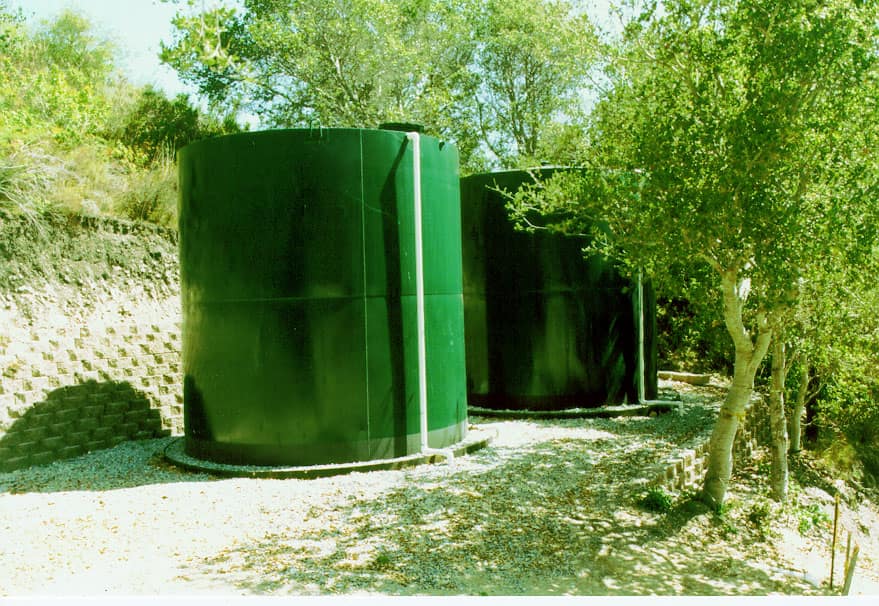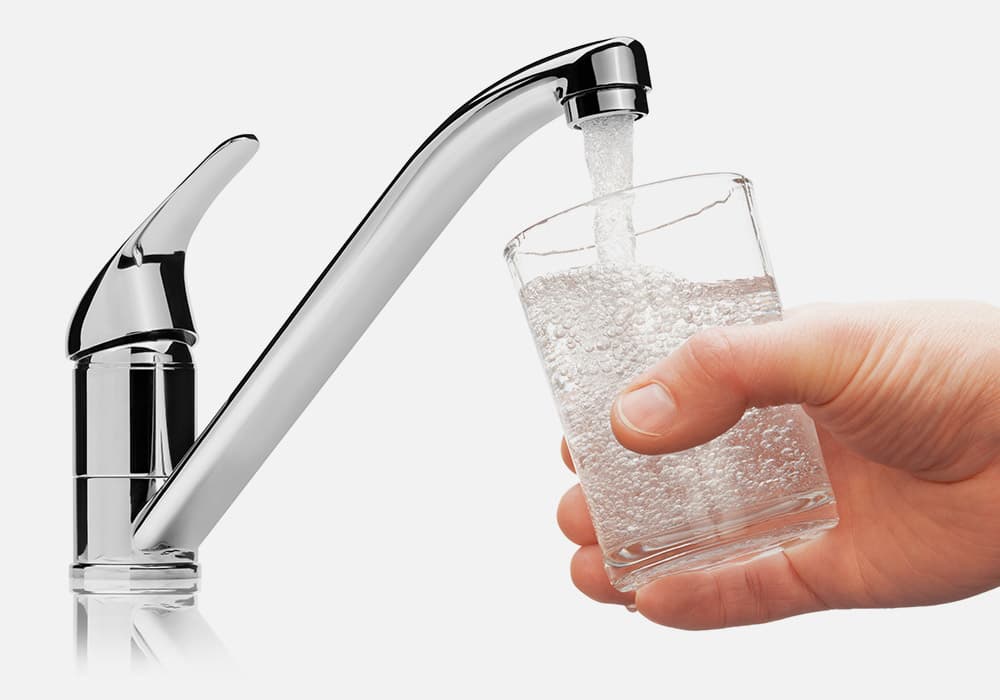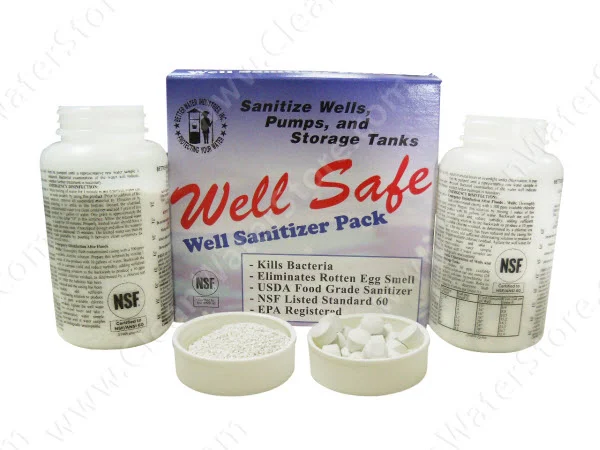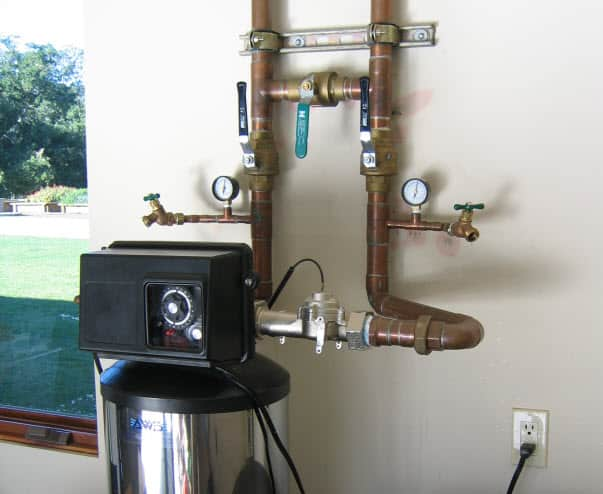What strength of hydrogen peroxide do you recommend to replace bleach?
A Common Question We Hear
“What strength of hydrogen peroxide do you recommend to replace bleach?”
Or:
“Do you recommend replacing chlorine bleach with hydrogen peroxide in my well water chlorinator? I heard it works better or is less toxic.”
Hydrogen peroxide is indeed a great alternative to bleach in many well water applications, whether the goal is to eliminate hydrogen sulfide or other odors, bacteria, or to oxidize iron or tannins.
Unlike chlorine bleach (which is also called sodium hypochlorite) it does not add sodium or other trace contaminants to the water. Peroxide breaks down into oxygen and water, leaving the water smelling fresh and looking clean. Combined with a catalytic backwash carbon filter, the water is left free of odor, sediment, iron, manganese, and any trace residues or peroxide residuals.
In some applications, a chlorine residual is desired; however, this is not the case in small community systems, where a disinfectant residual is preferred in the distribution system.
Peroxide is more expensive to use than chlorine, but the actual dollar amounts are small for the typical residential well water user. Most users spend between $4 and $12 per month on peroxide.
Chlorine bleach is typically 5% chlorine. Some bleach is available (often sold for pools) that is 10-12% sodium hypochlorite. We recommend 7% hydrogen peroxide. If you switch from 5% chlorine to 7% peroxide you can expect to turn down the control knob on the metering pump or dilute the peroxide to achieve the same effect as chlorine.
Higher concentrations of peroxide are also available, but are hazardous to use and difficult and expensive to ship. Peroxide acts faste,r and in some applications, less peroxide can be used than the equivalent chlorine bleach.
Introduction to Hydrogen Peroxide
Hydrogen peroxide is a chemical compound with the formula H2O2, consisting of two hydrogen atoms and two oxygen atoms. It is a versatile and widely used substance in various applications, including water treatment, household cleaning, and industrial processes.
Hydrogen peroxide is a strong oxidizing agent, making it effective in removing organic matter, bacteria, and other contaminants from water. In its pure form, hydrogen peroxide is a pale blue liquid that is slightly more viscous than water. However, for household use, it is typically available as a dilute solution, with concentrations ranging from 3% to 12%.
How Hydrogen Peroxide Works
Hydrogen peroxide works by releasing oxygen gas when it comes into contact with organic matter, bacteria, or other contaminants. This process, known as oxidation, breaks down the contaminants, making them harmless. Hydrogen peroxide is a broad-spectrum disinfectant, effective against a wide range of microorganisms, including bacteria, viruses, and fungi.
In water treatment, hydrogen peroxide is used to remove odors, tastes, and colors from water, as well as to control the growth of algae and bacteria. The oxygen produced by hydrogen peroxide also helps to break down organic matter, making it an effective treatment for sewage and wastewater.
Safety Considerations
When handling hydrogen peroxide, it is essential to take safety precautions to avoid accidents and injuries. Concentrated hydrogen peroxide can cause severe burns, eye irritation, and respiratory problems. It is also highly corrosive and can damage skin and mucous membranes.
In case of accidental ingestion, it is crucial to seek immediate medical attention, as high concentrations of hydrogen peroxide can cause gas embolism, tissue damage, and even death. The permissible exposure limit for hydrogen peroxide is 1.0 ppm, and it is essential to follow proper handling and storage procedures to avoid exposure to hazardous concentrations.
Concentration and Strength
Hydrogen peroxide is available in various concentrations, ranging from 3% to 98%. The concentration of hydrogen peroxide determines its strength and effectiveness in different applications. For household use, a 3% solution is commonly used, while higher concentrations are used in industrial and commercial applications.
It is essential to handle concentrated hydrogen peroxide with care, as it can be highly corrosive and cause severe burns. When using hydrogen peroxide, it is crucial to follow the recommended concentration and usage guidelines to avoid accidents and ensure effective treatment.
Benefits of Using Hydrogen Peroxide
The benefits of using hydrogen peroxide are numerous, making it a popular choice for various applications. It is a cost-effective and environmentally friendly alternative to other disinfectants and treatment methods. Hydrogen peroxide is also a broad-spectrum disinfectant, effective against a wide range of microorganisms, making it an excellent choice for water treatment and household cleaning.
Additionally, hydrogen peroxide is a natural metabolite produced by the human body and is biodegradable, making it a safe and non-toxic substance for use in drinking water treatment. Overall, hydrogen peroxide is a versatile and effective substance that offers numerous benefits and advantages in various applications.
If you are thinking of replacing your chlorine with peroxide, you need to make sure your existing metering pump can work with peroxide.
Have a question about peroxide or chlorine? Please email us or call us anytime.
Sources:
- U.S. Environmental Protection Agency. (n.d.). Drinking Water Treatability Database – Hydrogen Peroxide. https://tdb.epa.gov/tdb/treatmentprocess?treatmentProcessId=-1234021623
- U.S. Environmental Protection Agency. (2023, March). Water treatment chemical supply chain profile: Hydrogen peroxide. https://www.epa.gov/system/files/documents/2023-03/Hydrogen%20Peroxide%20Supply%20Chain%20Profile.pdf














